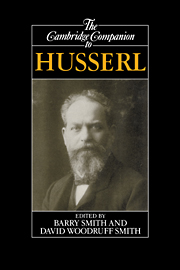7 - Mind and body
Published online by Cambridge University Press: 28 May 2006
Summary
THE MIND-BODY PROBLEM IN HUSSERL
Husserl is often read as an idealist, more like Kant than Berkeley, or else as a dualist, with epistemological motivations like those of Descartes. It would be only fitting for Husserl then to set aside the physical world and study pure consciousness. Phenomenology, the science of consciousness, would become the whole of philosophy.
However, when we look closely at what Husserl says about mind and body, when we read Husserl with an eye to the mind-body problem per se, his metaphysics looks very different. Husserl fashioned an intricate ontology of mind and body, coordinated with a rich phenomenology of our awareness of body and mind, as well as an epistemology of the kinds of evidence we have about body and mind. I propose to excavate and reconstruct Husserl's ontology of mind and body, along with the coordinate phenomenology. The result is a monism of substrata (individuals or events) and a pluralism of essences, as well as senses, of body and mind (which may apply to the same individuals or events). This many-aspect monism (not Husserl’s term) is obscured by the superstructure of Husserl’s “transcendental idealism,” which does not set well on the monistic foundation. We shall remove (in a sense, deconstruct) that superstructure, revealing and restoring the underlying monism.
- Type
- Chapter
- Information
- The Cambridge Companion to Husserl , pp. 323 - 393Publisher: Cambridge University PressPrint publication year: 1995
- 20
- Cited by



